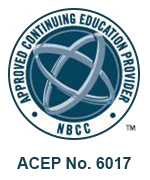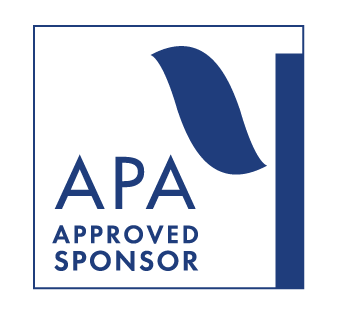One day event hosted by our Combined Child Program Faculty open to all mental health care providers and those in training. Participants will earn 6 CE credits
Registration
Click to register for this event
Program Date(s):
February 22, 2024Overview
While death by suicide and suicidal ideation have always occupied the minds of clinicians, increased rates of suicidal behavior in children and adolescents are signaling the importance of more theoretical thinking, research, and targeted interventions to address this concerning trend. Join us for a day of learning, where we explore the phenomenology behind suicide and non-suicidal self-injury in this vulnerable population from a psychoanalytic lens. Additionally, we will examine contemporary approaches to assessing suicide risk, theoretical understandings of suicidality in youth, the transference-countertransference dynamics of suicidal patients and their families, intergenerational influences on suicidality, and post-suicide interventions for suicide loss in families and clinicians. Format will include case examples, lecture with clinical vignettes, and group discussion to facilitate learning in an experience-near format.
Faculty & Guest Presenters:
Janine Wanlass, Ph.D. (Chair)
Jill Scharff, M.D.
Ana Maria Barroso, M.D.
Marcela Sofer de Cohen, Ph.D.
Anna Lieber, CMHC
Who should attend?
This program is designed for clinicians working with children/youth/families, where suicide and self-injury emerge in the treatment. Clinicians treating adults with chronic suicidality may benefit as well, since chronic suicidality typically begins at a young age.
Tuition and Fees
General Registration $180
IPI Member Registration $153
Current Program Students – no additional cost (included in your 2023-2024 tuition)
Educational Objectives
Presentation 1
- Participants will describe 2 factors contributing to suicidal ideation and attempts in children and adolescence, which differ from suicidality in adults.
- Participants will discuss at least 3 components of a psychoanalytic view of suicidality, including projection, intergenerational trauma, self-directed aggression, futility about emotional pain, and family dynamics.
- Participants will differentiate motivations for non-suicidal self-injury (NSSI) versus suicide attempts in youth.
- Participants will describe a similarity and a difference in treatment approaches for NSSI and suicidal behavior, including activation of safety planning.
Presentation 2
- Using the case example presented and experience in their own practices, participants will discuss 3 challenges containing and understanding transference/countertransference dynamics with suicidal patients and their families.
- Drawing from the case example presented, participants will identify 2 techniques used to move intended suicidal action toward mentalizing and working through internal conflict.
- Drawing from the case example presented, participants will discuss 2 protective factors that helped mediate suicide risk.
Presentation 3
- Participants will discuss the concepts of holding and containment in the treatment of suicidal adolescents.
- Drawing from the case presentation, participants will describe the meaning of self-cutting and suicidal thoughts for this patient in relation to her developmental phase.
- Participants will identify 2 defense mechanisms the teenager can use to deal with anxiety.
Presentation 4
- Participants will describe 2 common ways that suicide loss affects clinicians.
- Participants will discuss 2 approaches toward working with suicide loss in families that incorporate psychoanalytic principles.
- Participants will list 2 resources for clinicians experiencing suicide loss, including benefits/problems with common approaches to processing suicide loss.
Plenary
- Participants will discuss a learning benefit from attending today’s workshop.
- Participants will describe one area for future offerings based on today’s workshop.
Should you have any questions about the program or the application process, please feel free to contact:
IPI administrative team - contactus@theipi.org
Combined Child Program
This one day event is hosted by our Combined Child Program, a 2-year, 2-hours-a-week, high quality, distance learning and on-site training course for adult analysts and advanced child psychotherapists who wish to learn child analysis, and for child and adult psychotherapists who wish to deepen their work with children.
Learn more about the full program »
Membership Benefits
Become a member of IPI at any level and you will have the option of adding on a Zoom Pro account as one of your member benefits. Associate and Full Members also receive discounted registration fees for most of IPI’s events, a subscription to PEP Web, the online psychoanalytic library, and other benefits depending on membership level.
HIPAA compliant Zoom video accounts are an optional add on for all IPI memberships. IPI has a HIPAA Business Associate Agreement with Zoom, which provides a HIPAA compliant platform for our accounts. HIPPA compliance is strongly recommended for all internet-mediated clinical work and clinical teaching. The “+ Zoom Pro” add-on to the IPI membership gives the user the ability to host online meetings with multiple people at the same time. [Current members can upgrade to the “+ Zoom Pro” account and only pay the difference in price from your current membership level.]
Click for IPI Membership and Zoom Account information
Continuing Education Information
The International Psychotherapy Institute, IPI, is approved by The American Psychological Association to sponsor continuing education for psychologists. IPI maintains responsibility for the program and its content. The International Psychotherapy Institute has been approved by NBCC as an Approved Continuing Education Provider, ACEP No. 6017. Programs that do not qualify for NBCC credit are clearly identified. The International Psychotherapy Institute is responsible for all aspects of the programs. The International Psychotherapy Institute is authorized by the Board of Social Work Examiners in Maryland to sponsor social work continuing education learning activities and maintains full responsibility for this program. This training qualifies for Category I continuing education units. The International Psychotherapy Institute is recognized by the New York State Education Department’s State Board for Social Work as an approved provider of continuing education for licensed social workers #SW-0299.
Participants are responsible for verifying that IPI CE credit is accepted by the licensing boards in their own states.



